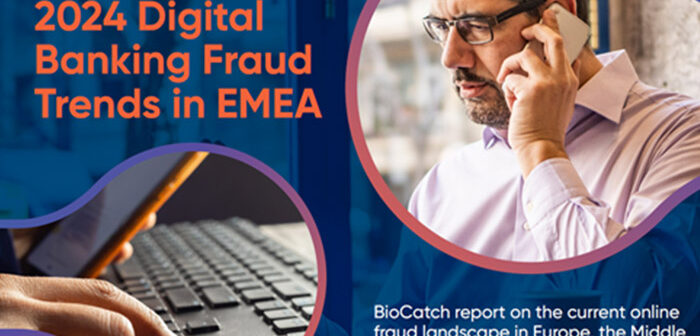
A report released by BioCatch reveals bad actors are bombarding European financial institutions with a medley of bank impersonation, purchase, romance, investment, and other scams.
BioCatch also warns of more attacks employing artificial intelligence (AI) to target victims in their native languages.
“While we’re at the dawn of the age of AI-powered fraud,” BioCatch Director of Global Fraud Intelligence Tom Peacock said, “this is not a scourge of tomorrow or some distant future. It’s happening right now and banks need to protect themselves and their customers. In just the last year, fraudsters have used AI to create hyper-localized and -personalised videos, voice recordings, emails, and text messages to skirt bank defenses and target a broader range of victims.”
If there’s an outlier in this EMEA Report’s findings, it’s in the UK, where the voice scams plaguing the rest of the continent fell by 25% from the year before, in a trend that may signal fraudsters are desperately seeking ways around modern fraud-protection controls such as behavioral biometric intelligence.
Account takeover (ATO), meanwhile, started to rise in the UK again in 2023, with its slice of the total fraud pie increasing by 13%.
The research saw more patient fraudsters, skirting bank controls by repeatedly logging into their victims’ accounts without making any fraudulent transactions, gradually building trust with the financial institution before finally transferring away the money they planned to steal all along.
The UK’s also the first country in Europe not only to mandate reimbursement for fraud victims (no matter the scam for which they fell) but also to split reimbursement liability between the sending and receiving banks, leading to a monumental increase in the detection of mule accounts in the country last year.
“If AI represents the next frontier of digital-banking fraud, mule accounts are the timeless tool ubiquitous to every scam since the outset of online banking,” BioCatch Regional Vice President Paul Davis said. “If we can identify and shut down these sprawling networks of intermediary accounts, we can make a massive dent in digital fraud and financial crime throughout Europe and around the world.”
Other key EMEA Report findings:
- Happens on Mobile: 75% of reported fraud cases among BioCatch’s European users took place on mobile devices, up 6% from 2022.
- More Stolen Devices Used for Fraud: Stolen-device cases reported to BioCatch rose by 43% in the region, with the UK and Spain accounting for the brunt of the increase.
- Mules Are Everywhere: BioCatch’s Mule Account Detection solution identified more than 10,000 suspicious accounts among the company’s European customers.
- Regulations Forcing Fraudsters to Pivot: As banks tighten digital security to align with ever-changing regulation aiming to protect fraud victims, bad actors have begun to change their tactics, leading to an explosion in social-engineering scams across the continent.
“We Fight Fraud (WFF) is deeply attuned to the increasing prevalence of scams and the exploitation of AI to deceive individuals and extract their finances,” WFF CEO Dr. Nicola Harding said. “According to Ofcom, a staggering 43 million adults in the UK encountered a potential scam online last year, with more than half of these instances involving impersonation scams. WFF partners consistently express concerns about fraudsters using AI to elevate impersonation scams to new levels. That’s why we’re delighted to collaborate with BioCatch to promote awareness of these contemporary threats throughout April, May, and June, as part of our April Fraud campaign.”
You can read the full report here.






